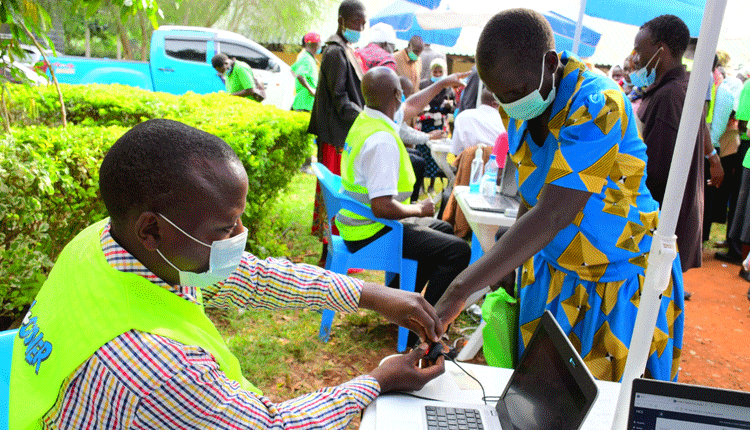Employers get MPs backing on National Hospital Insurance Fund bill

Kenyan employers will not match workers’ monthly contributions to the National Hospital Insurance Fund (NHIF) after lawmakers rejected the proposal yesterday.
An amendment by Kikuyu MP Kimani Ichung’wah carried the day with legislators saying that forcing the employers to top their worker’s contributions would affect the wage bill.
However, the national government, parastatals and county governments were not exempted and will match their employees’ contributions once the Bill is assented to by the President.
Federation of Kenya Employers (FKE) had also rejected the proposal and warned that forcing employers to match the contributions to the Fund, would destroy private medical insurance and force firms to deepen job cuts.
“Compelling employers to match the worker’s contributions will lead to the latter altering their wage bill which might lead to job losses,” Ichung’wah warned.
The NHIF Amendment Bill which was at its Third Reading also saw MPs make critical changes to the health insurer including giving them powers to allocated funding to Parliament from the National Treasury.
Moving the amendment, Leader of Minority John Mbadi said delays in the release of funds by the Treasury had affected the Fund’s functions.
Kenyans who are 18 years and above will now pay Sh6,000 annually as contributions to the health insurer.
NHIF sought to borrow the National Social Security Fund (NSSF) model where employers match workers contributions.
The Fund aimed to raise at least Sh25 billion from employers, which would have been spent in widening the scope of coverage of the paid-up members.
However, employers protested that the proposal was coming too soon since they were yet to recover from the effects of coronavirus which triggered job cuts, hiring freezes and business closures.
Paying double
Jacqueline Mugo, the FKE Chief Executive told Parliament when she presented the federation’s memorandum on the matter that matching worker’s contributions will not only affect the wage bill and sustainability of enterprises but also destroy the capacity of enterprises to create new jobs and sustain the existing jobs.
In a memorandum to the National Assembly Committee on Health, Mugo said the proposals contained in the NHIF (Amendment) Bill, 2021 overlook the fact that some employers provide medical insurance for their staff.
The NHIF had 8.898 million members at end of June 2020, with 4.452 million drawn from the formal sector and 4.546 million from the informal segment.
Formal workers contributed Sh24.89 billion to the NHIF in the financial year ended June 2017, the latest available detailed financial statement shows, a pointer that employers will pay at least Sh25 billion.
Mugo said that most employers in Kenya operate private medical insurance schemes for their employees.
“Making it mandatory for the employers to match their employees’ contribution will mean that they are paying double for the health insurance. This will not only lead to unnecessary increase in the cost of labour in Kenya, but it will also destroy the private health insurance industry and the competitiveness of Kenya’s business operating environment,” she said in the memorandum.
MPs also reduced penalties for insurance firms who remit money late to health providers from Sh10 million proposed in the Bill to Sh5 million.
Employers who remit the money late or beyond the ninth of each month, will be liable to a penalty of 25 per cent of the outstanding contribution and also foot all medical bills for workers who fall sick within the default period.
Historic day
Individual contributors who fail to pay their premiums by the ninth of every month pay a 50 per cent penalty.
“Employer shall be liable to pay the penalty prescribed in subsection (I) and pay the costs incurred by the employee, when seeking treatment from a contracted health care provider during the period when the contribution is due,” says the government-backed Bill.
Earlier, Deputy President William Ruto had appealed to MPs to support the NHIF Bill which seeks to make every Kenyan access health cover.
He said the ambitious law will benefit millions of people who have not been able to access medical care due to lack of finances.
“This is a historic day; all MPs should step forward and pass the Bill which is already four years behind schedule,” he said.







